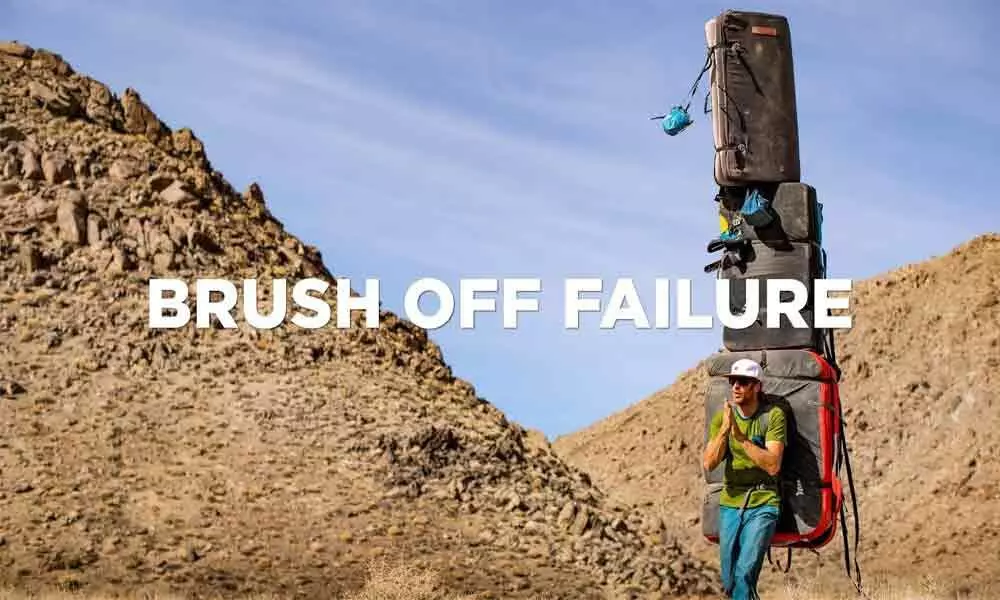Brush off failures

Failure is a natural part of life. Making mistakes and moving through our problems is an inevitable occurrence. Many people have completely given up on the idea of pushing hard and giving their all because they fear failure, rejection or loss.
Failure is a natural part of life. Making mistakes and moving through our problems is an inevitable occurrence. Many people have completely given up on the idea of pushing hard and giving their all because they fear failure, rejection or loss. As a result they have become the walking dead, refusing to actually live their life and face the mistakes and failures that come with it.
Other people go forth against their goals, but still seem to hold something back, as if not giving all of their resources could then be used to justify a potential failure. However, these people end up at the same level, because growth can only come when we are investing all of our efforts. Being able to handle failure is crucial to our growth and our success.
Handling failure isn't easy. Unfortunately, being able to handle failure takes a lot more than a platitude. Trying to rephrase your failures in terms of "learning opportunities" rarely breaks the strong, negative emotional connection we attach to those failures. Even if we know, logically, that getting rejected when asking someone on a date is a "learning opportunity", most of us will still feel the pain associated to that rejection. How can we break this destructive link in our minds so that we can give our all without drawing back into fear?
In order to break the connection that we place in our head between the fear and pain that causes us to avoid taking action we need to recognize that it can actually be useful. At this point I am sure some of you are saying, "Useful!?" you just told us how destructive and wasteful this pain is, "How can it possibly be useful?"
Feeling pain when we fail is actually a good thing. Think about it. If you didn't feel bad when you failed to stick to your diet, do you think you would be able to continue on it? Probably not. The pain of failure is often an incredibly great motivator. I remember hearing about Michael Jordan discussing what caused him to reach the threshold that took him to greatness. In the discussion, he said how the pain of giving his all and losing was what drove him to take his game to the next level. Pain of failure is not a bad thing. Without any pain for our failures and we wouldn't have much motivation to even bother.
The problem is that the pain of failure can sometimes overwhelm another source of pain that is even more necessary, the pain that comes from doing nothing at all. I believe it was Theodore Roosevelt who said, In any moment of decision, the best thing you can do is the right thing, the next best thing is the wrong thing, and the worst thing you can do is nothing." Failure is not something we should pride ourselves on, but it is far better than doing nothing at all.
To fail in the attempt of something still involves some success. You were successful in actually making the attempt. To do nothing is a failure of both counts. If the pain of doing nothing at all, of stalling and procrastinating, is not greater than the pain of failure, you will not take action. Without that sense of pain associated to doing nothing, it is impossible to move forwards.
In front of you I place two boxes. One of them contains a five dollar bill and the other one will give you a painful shock if you put your hand in it. It is impossible to tell from the exterior which one will give the reward and which one will give pain. Based on this observation, you may decide that the risk of pain is too great to warrant taking action. Sure you might get five dollars, but you don't really need the money badly and the shock is very painful.
Source: www.scotthyoung.com

















